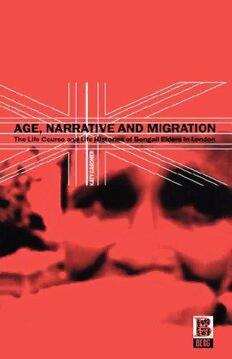
Age, Narrative and Migration: The Life Course and Life Histories of Bengali Elders in London PDF
262 Pages·2002·0.874 MB·English
Most books are stored in the elastic cloud where traffic is expensive. For this reason, we have a limit on daily download.
Preview Age, Narrative and Migration: The Life Course and Life Histories of Bengali Elders in London
Description:
Whilst the vast majority of recent research on identity and ethnicity amongst South Asians in Britain has focused upon younger people, this book deals with Bengali elders, the ‘first generation’ of migrants from Sylhet, in Bangladesh. The book describes how many of these elders face the processes of ageing, sickness and — finally — death, in a country where they did not expect to stay and where they do not necessarily feel they belong. The ways in which they talk about and deal with this, and in particular, their ambivalence towards Britain and Bangladesh lies at the heart of the book. Centrally, the book is based around the men and women’s life stories. In her analysis of these, Gardner shows how narratives play an important role in the formation of both collective and individual identity and are key domains for the articulation of gender and age. Underlying the stories that people tell, and sometimes hidden within their gaps and silences, are often other issues and concerns. Using particular idioms and narrative devices, the elders talk about the contradictions and disjunctions of transmigration, their relationship with and sometimes resistance to, the British State, and what they often present as the ‘breakdown’ of ‘traditional’ ways. In addition to this, the book shows that histories, stories and identity are not just narrated through words, but also through the body - an area rarely theorized in studies of migration.
See more
The list of books you might like
Most books are stored in the elastic cloud where traffic is expensive. For this reason, we have a limit on daily download.
